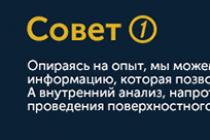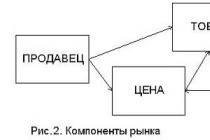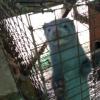GAMES TO REVEAL THE LEADER.
"The Gypsies Came"
The leader invites the children to build a gypsy wagon, consisting of a cart, three horses, cart walls, a roof, wheels, a cab, passengers, and a colt on a leash. Time to prepare the task 3 - 5 minutes. Interpretation: the driver is currently the main leader - the organizer in the detachment, the walls and the roof - those who can be relied upon, good performers. Wheels, cart, horses - those on whom everyone strives to “ride”, and who is able to carry, that is, leaders of a lower rank. The foal is “dropped out”, but with claims to leadership. Passengers are the bulk. At the end of the game, it is necessary to ask the guys whether everyone agrees with this distribution of roles and what place they are applying for.
"Karabas"
To conduct the game, children are seated in a circle, a counselor sits with them, who offers the conditions for the game: “Guys, you all know the tale of Pinocchio and remember the bearded Karabas-Barabas, who had a theater. Now you are all puppets. I will pronounce the word "KARA-BAS" and show a certain number of fingers on outstretched hands. And you will have to, without agreeing, get up from your chairs, and as many people as I show my fingers. This game develops attention and speed of reaction. This game test requires the participation of two counselors. The task of one is to conduct the game, the second is to carefully observe the behavior of the guys. Most often, more sociable, striving for leadership guys get up. Those who get up later, at the end of the game, are less determined. There are those who first get up and then sit down. They form a group of "conscientious". The uninitiated is the group of the detachment that does not get up at all. It is recommended to repeat the game 4-5 times.
"Put your hand"
The guys are invited to put their right hand on the shoulder of the person in the detachment who is most sympathetic to them (the soul of the detachment), and the left hand on the shoulder of the one they would like to see as the commander. The leader determines who is who by counting hands. As a rule, there are not too many leaders if this game is played at the end of the organizational period.
"Line up by"
2 teams are participating. According to the leader’s cotton, they should line up according to: 1) hair color (from light to dark or vice versa), 2) shoe sizes (from smaller to larger), 3) alphabet; 4) hair length, 5) eye color (from light to dark or vice versa).
"Sculpture"
The counselor invites the children to build a sculptural exposition “Our detachment in the camp” within 5 minutes. By the one who takes on the role of foreman, they judge the leaders.
"Take a step forward"
The guys become wider in a circle, and they are invited to take a step forward, but only 15 people. Then only 10, 5, 3, 1. Believe that leaders - organizers and emotions are immediately well identified.
"Started"
To do this, the guys are divided into two or three teams equal in number of participants. Each team chooses a name for itself. The host proposes the conditions: "Now the commands will be executed after I command" Start! "The team that completes the task faster and more accurately will be considered the winner." In this way, you will create a spirit of competition, which is very important for the guys.
FIRST TASK. Now each team should say a single word in unison. "Begin!" In order to complete this task, it is necessary for all team members to agree somehow. It is these functions that a person striving for leadership takes on.
SECOND TASK. Here it is necessary that half the team quickly get up without agreeing on anything. "Begin!"
THIRD TASK. Now all the teams are flying in a spaceship to Mars, but in order to fly, we need to organize the crews as quickly as possible. The crew includes: captain, navigator, passengers and "hare". So who's faster?! Usually, the leader again takes on the functions of the organizer, but the distribution of roles often occurs in such a way that the leader chooses the role of a "hare" for himself. This can be explained by his desire to transfer the responsibility of the commander to the shoulders of someone else.
FOURTH TASK. We flew to Mars and we need to somehow accommodate in a Martian hotel, and there is only a triple room, two double rooms and one single room. You need to distribute as quickly as possible who will live in which room. "Begin!" After playing this game, you can see the presence and composition of microgroups in your team. Single rooms usually go to either hidden, unidentified leaders or "outcasts". The proposed number of rooms and rooms in them is made for a team consisting of 8 participants. If there are more or fewer participants in the team, then make up the number of rooms and rooms yourself, but with the condition that there are triples, doubles and one single.
ROPE.
To play this game, take a rope and tie its ends so that a ring is formed. (The length of the rope depends on the number of guys participating in the game.) The guys stand in a circle and take the rope inside the circle with both hands. Assignment: "Now everyone needs to close their eyes and, without opening their eyes, without letting go of the rope, build a triangle." First, there is a pause and complete inactivity of the guys, then one of the participants offers some kind of solution: for example, to pay off and then build a triangle by serial numbers, and then directs the actions. The practice of this game shows that usually these functions are taken over by the leaders. The game can be continued, complicating the task, and invite the guys to build a square, a star, a hexagon.
"Coon circles"
All the guys in your squad are invited to stand in one circle, join hands. Assignment: "Now everyone needs to close their eyes and, without opening their eyes, without releasing their hands, build a triangle." First, there is a pause and complete inactivity of the guys, then one of the participants offers some kind of solution: for example, to pay off and then build a triangle by serial numbers, and then directs the actions. The practice of this game shows that usually these functions are taken over by the leaders. The game can be continued, complicating the task, and invite the guys to build a square, a star, a hexagon.
"Magic Ball"
The counselor has a ball in his hand (made from one sheet of A4 paper). Calling his name, he throws the ball to any child from the circle, the child to another. The ball must pass all the guys. Then the counselor gives the following task: "Now the ball should pass all of you in the same order in 1 minute." After they have succeeded, you cut the time: 30 seconds, 3 seconds, and 1. Know that this is possible. First, the guys can move. Secondly, the ball must pass all hands. Thirdly, it cannot be taken by one child and held on the handles of the rest. You need to ensure that the guys, by their own reflections and trials, come to the following decision: By joining the hands of all participants, they built a well. There may be other options, think of it.
"Coach"
All children are divided into two teams. And you give each team the same task in your ear - to build a carriage of people. Preparation time 2 minutes. It is very important to follow the whole process that takes place in teams: who leads, who invents, who does not care, who builds all team members. During the preparation, you can clearly see most of the children, choose leaders.
"Photographer"
It is proposed that the guys imagine that they are all a big family and everyone needs to be photographed together for a family album. You must select a "photographer". He should arrange the whole family for photographing. The “grandfather” is chosen first from the family; he can also participate in the arrangement of the members of the “family”. No more settings are given for children, they must decide for themselves who to be and where to stand. And you wait and watch this entertaining picture. The role of "photographer" and "grandfathers" is usually taken by the guys striving for leadership. But, however, elements of leadership and other "family members" are not excluded. It will be very interesting for you to observe the distribution of roles, activity-passivity in choosing a location. This game, played in the middle of the shift, can open up new leaders for you and reveal the like-dislike system in groups. After the distribution of roles and arrangement of "family members", the "photographer" counts up to three. On the count of three! everyone together and very loudly shout "cheese" and make a simultaneous clap of their hands.
"Bee"
A circle is drawn. Children stand in a circle. They are encouraged to close their eyes, buzz and move in any direction. Then the command "Stop!" and everyone stays where they are. Those who stand in the center of the circle or closer to the center of the circle are leaders in terms of their capabilities. Those who stand on the line of the circle have the traits of a leader, but for a number of reasons they may or may not be leaders (they do not always strive for this). Those behind the circle don't aspire to be leaders. Who stands very far from the circle, lonely people.
Each person has his own barriers that prevent him from taking control of his life, we read,. As a rule, it begins with the identification of limiting beliefs.
And the first step on the path to liberation and leadership growth is the recognition that some limiting beliefs and blocks are inherent in you. But again, this is just the first step. Others will be required. To gain your own strength, to believe in the achievability of the goal, to understand and accept yourself, to acquire new skills in self-development, you will need special exercises for the development of leadership skills.
top priority a potential leader (or someone who wants to develop leadership skills) becomes an analysis of their strengths, determining their potential and finding their own approaches and methods of work. Leadership potential is “something” that is already inside you, you need to discover it in yourself and learn how to use it.
At the second stage, you need to learn to believe in your success, even if at the moment there are no real prerequisites for it.
The third step is willpower, because this is the realm of action. As you understand, without certain actions, it will not be possible to achieve the plan. By themselves, on the couch, even if they seem absolutely real, they by no means become so. However, willpower is needed not only for the sake of action, but also in order not to be afraid to fail and move on.
Everyone has to experience the development of leadership skills firsthand, no one will go through this path instead of you or together with you. Leadership development programs and training exist, but this is a theory that will remain a waste of time until you have the courage to test it for yourself.
I offer you leadership development exercises. They belong to the initial stage of development of leadership potential. They were made by psychologists. Jose Stevens and Mike Woodcock.
I want to warn you right away that because of the seeming simplicity, you will have doubts about their effectiveness, but if you take a risk and just follow them every day, in a month you will feel your own strength, and your value in the eyes of others will increase.
Exercise #1: Dialogue with the Inner Critic
If there is “someone” inside you who constantly informs you that nothing will work out for you, because you are a clumsy (loafer, mediocrity, worthless, stupid, etc.) - learn to object to him.
Do not listen in silence to everything he says and, moreover, do not agree with him. If he annoys you, then be annoyed!
Feel free to write down everything he says. Even if the meaning in his words is zero - write everything down. The only condition is to speak and write in the second person. Instead of "I'm dumb" or "I'll never be a leader," write "you're dumb" and "you'll never be a leader." After that, answer him as if he were a bully, but a cowardly bully: "So what?"
Approach his words from a philosophical point of view. Ask yourself: “Who am I when this voice is silent?”
A great way to destroy the inner critic -.
Exercise number 2. Diary of success
Get yourself a notebook and every night before going to bed write down in it a few things that you succeeded today. This should be done no matter how bad the day turned out to be.
This is how human memory works, that we remember pain better than joy, and most people at the end of the day remember mainly its hardships and troubles. Concentrating on the bad, we lose energy, concentrating on the good, we recharge
Show your will - focus on those situations in which you won. Record these situations with a Success Diary
Exercise number 3. The opinion of others
Record and listen to the recognition of the people around you of your strengths and weaknesses. This will require great courage from you, but it must be done.
Make a list of a few friends or relatives from whom you feel love and desire to help. Ask each of them to write down why they love and respect you and, conversely, what annoys and annoys them about you. There is only one condition: the number of advantages and disadvantages should be approximately equal.
After you collect the notes, read them in their entirety. When you find the strength in yourself to find out someone else's opinion about yourself without straining (without shrinking from fear or shame), you will get rid of many internal clamps.
Hint: your inner critic will constantly tell you that all this is nonsense, not worth the effort. Don't let him stop you.
Exercise number 4. Reflection in the mirror
Learn to look at yourself in the mirror without clothes. Look into your own eyes. At first, this will seem like real nonsense to you. Gain strength and patience.
It takes most people a very long time to take their first good look in the mirror and not turn away or run away - it takes courage.
This happens when you do not accept yourself because you are guided by the opinions of others or Hollywood standards. You may feel angry at them for wasting their time trying to please someone else's standards. Allow yourself to be angry, but don't direct the anger at yourself.
Ask yourself: "What right do I have to judge this person, his body?" Anger will be followed by sadness, followed by a sense of relief and acceptance. But let them come in their own way, slowly, do not try to rush them.
Exercise number 5. Daily risk
So, if you practice leadership development exercises for a month, you will definitely see a positive trend. The main thing is to take responsibility to work them all out. If you do something sometimes, there will be no result. Some will please you immediately, some will hurt, but at least ten of them should become part of you.
Training "I am a leader"
Training goals:
1. Disclosure of the personal potential of group members.
2. Formation of ideas about leadership, awareness and manifestation of their strengths.
Training objectives:
1. Formation of mutual understanding and a sense of responsibility towards each other.
2. Formation of skills of understanding each other.
3. Acquiring the skills of taking responsibility for each other.
4. Identification and development of ideas about leadership.
5. Acquisition of skills in planning activities and organizing teamwork.
Materials and equipment: whatman paper, pencils, felt-tip pens, glue, magazines and newspapers, a candle, scissors, A4 sheets, role cards, test forms.
Time spending: 1 hour.
1. Exercise "Aquarium"
Purpose: formation of a positive favorable climate in the group.
Materials: drawing paper, pencils (felt-tip pens), glue, A4 sheets, scissors.
Time: 5-10 min.
Exercise progress:
The group members are given sheets, scissors, felt-tip pens. Within 15 - 20 minutes, they must decide what breed of fish they will be in this lesson, draw, cut, color the fish, write on it the name of the participant, the breed of the fish.
At the next stage, each of the participants must attach their fish to the wall (paper sheet), which is the image of the aquarium. Where to stick the fish - everyone decides for himself (someone deeper, someone near the surface), someone in algae, someone among the stones. Also, participants must give their name and tell what this fish is looking for in the aquarium, how it imagines its existence among other fish.
Issues for discussion:
2. Did you have any difficulties in telling the story?
3. What feelings did you experience at the same time?
2. Exercise "I'm glad to see you ..."
Purpose: to determine the positive aspects of the participants.
Time: 5 min.
Materials: no.
Exercise progress:
Each of the participants addresses his neighbor with the words: "I'm glad to see you, because ...". It is necessary to continue this statement not with external descriptions of a person, but with the personal qualities of the participants.
Issues for discussion:
1. Was it easy for you to do the exercise?
2. How did you feel when your neighbor approached you?
3. What did you experience when you had to turn to another person with the words "I'm glad to see you ..."?
4. Was it easy for you to determine why you are glad to see your neighbor?
5. Do you often have to compliment people in your life?
3. Exercise "Leader rod"
Purpose: to get to know the participants.
Materials: table for the exercise.
| Do you know any trick? | Can you remember 10 cartoon characters? | Do you have a lot of friends? | Does your family consist of 4 people? | Have you been on an airplane? |
| Was your name mentioned in the paper? | Do you love cosmetics? | Have you been on the roof of your school? | Do you attend any club? | Are you proud of yourself? |
| Are you afraid of the dark? | Do you love math? | YOUR NAME | You have Russian name? | Do you like being first? |
| Do you play chess? | Do you love pop music? | Do you like to work more in a group than alone? | Do you know the words of the Russian anthem? | Do you have a bycicle? |
| Do you dream of visiting abroad? | Can you fry potatoes? | You broke glass with a ball | Do you have relatives in the city? | Have you been at the camp? |
4. "Leader is -"
Purpose: identifying leadership qualities.
Materials: sheets of paper, markers, pencils, newspapers, magazines, scissors, glue.
Purpose: to master an active style of communication and develop partnership relations in a group.
Time: 10 min.
Exercise progress:
Within 10 minutes it is necessary to prepare a collage using newspaper headlines, photographs, freehand drawings or found in advertising publications, magazines, newspapers on the topic "Leader is".
Presentation of works.
Issues for discussion:
1. Was it easy for you to perform this exercise?
2. What feelings did you experience while doing this task?
3. What difficulties did you encounter in completing the assignment?
4. Who do you think is a leader?
So the leader is...
Here are a few opinions that were voiced at one of the trainings in response to the question: “Who is a leader, who can we call a leader?”
So, a leader is: first of all, a dominant personality; the one you want to follow;
Having the greatest impact on the environment;
A person who is able to transform the situation for the benefit of himself and others;
The one whose qualities of a manager, administrator, organizer are manifested to a greater extent than others.
5. Test "Am I a leader?"
Instructions for the test: “Carefully read each of the ten judgments and choose the answer that best suits you in letter form. When working with the questionnaire, remember that there are no bad or good answers. An important factor is the fact that in your answers you must strive for objectivity and write down the answer that comes to mind first.
test material
1. What is more important for you in the game?
A) win.
B) entertainment.
2. What do you prefer in general conversation?
A) Show initiative, propose something.
B) Listen and criticize what others have to offer.
3. Are you able to withstand criticism, not get involved in private disputes, not make excuses?
4. Do you like being praised in public?
5. Do you defend your opinion if the circumstances (the opinion of the majority) are against you?
6. In the company, in general, do you always act as a ringleader, come up with something that is interesting to others?
7. Do you know how to hide your mood from others?
8. Do you always immediately and resignedly do what your elders tell you?
9. Do you succeed in a conversation, discussion, to convince, to win over those who previously disagreed with you?
10. Do you like to teach (teach, educate, educate, give advice) to others?
Processing and interpretation of test results:
High level of leadership - A = 7-10 points.
The average level of leadership - A = 4-6 points.
Low level of leadership - A = 1-3 points.
A preponderance of “B” responses indicates very low or destructive leadership.
Issues for discussion:
1. Are you satisfied with the result?
2. Have you learned something new for yourself?
6. Exercise - joke "Test with subtext"
Purpose: to cheer up the group.
Time: 5 min.
Exercise progress:
Participants are given the following test forms and announced: “Now we will check how attentive you are and how ready you are to follow the instructions.
You need to quickly complete a small test.
You have only three minutes at your disposal.
Mindfulness Test
Name ______________________________________ Date ____________
Instructions: Before doing anything, read everything carefully and follow the instructions. The execution time is three minutes.
1. Enter your last name, first name and patronymic in the space provided and put today's date.
2. Enter your contact phone number. If you do not have it, then write the number 100.
3. Circle this number.
4. Put a cross in the lower left corner of the sheet.
5. Circle this sign with a triangle.
6. Say the number you wrote in step 2 loudly so that everyone can hear.
7. Enclose in a rectangle the word "angle" in sentence number 4.
8. In the upper part of the sheet, make three small holes with the tip of a pencil or pen.
9. Try to look at the world through these holes.
11. Shout loudly: "I'm almost done."
12. Now that you have read everything carefully, complete only tasks 1 and 2.
Children study one school year, once a week. The duration of the lesson is 2 hours. This makes it possible to turn all the acquired knowledge into a skill.
Classes for the development of a teenager are held in a playful way, which contributes to a better assimilation of the material.
Price:
1. Work with a trainer under the guidance of Elena Berezovskaya per month (4 lessons) - 1500 UAH.
2. Work in a group personally with Elena Berezovskaya per month (4 lessons) - 2500 UAH.
Attention! Payment is made immediately for the first and last month of training.
You can sign up for courses for teenagers in Kharkiv ☎️050 302 24 63 ☎️096 577 09 59
TEEN DEVELOPMENT IS THE BEST INVESTMENT IN OUR FUTURE!!!
TRAININGS IN THE SCHOOL OF LEADERSHIP FOR TEENAGERS WILL HELP YOUR CHILD TO BECOME A SUCCESSFUL, PROACTIVE PERSON!!!
On the course School of Leadership for children and teenagers in Kharkiv, they do not teach you to always be the first and lead other people. All trainings at the School of Leadership are aimed at developing the leadership character of adolescents, namely the development of basic leadership competencies: confidence, sociability, responsibility for one's life, self-organization, critical thinking, teamwork, awareness, self-acceptance with all its features.
The results of the course School of Leadership for Teens:
Firstly: children become more self-confident, participants are aware of their uniqueness, they competently analyze their shortcomings and advantages and are able to “work” with this. Children are able to analyze their personal resources, which gives them self-confidence.
Secondly: teenagers know personality types and this helps them understand themselves and the people around them. Participants know how to communicate with different types of people and resolve conflict situations more effectively. Teenagers study conflictology, which helps them find a common language with teachers and peers.
Third: participants are able to speak in public, communicate information in a structured way, manage the audience and convince, effectively argue, debate and debate.
Fourth: awareness of adolescents reaches a high level, they become proactive, ready to take responsibility for their lives. Children better understand themselves, know their values, their characteristics. This will help the teenager to better navigate the choice of future profession.
Fifth: teenagers receive a lot of information on money and time management skills. Such trainings motivate them, help them set ambitious goals and do everything possible to achieve them.
MKUOSHI "Panaev boarding school of secondary (complete) general education"
One step ahead!
(leadership training session)
A second compiler: Bolshakova S.Yu.,
Teacher-organizer
With. Panaevsk, 2013
Target: creation of conditions for revealing the leadership potential of high school students, mastering an active style of communication, the ability to convince.
Tasks:
- Identify students with leadership and organizational skills.
- Work out the skills of group activities, develop and realize creative abilities.
- Psychological unloading of children.
Master class progress
Before the start of the master class, each participant wears a “necklace”, on which several colored ribbons are attached. After completing certain tasks, everyone hangs one ribbon on the necklace of the person who, in his opinion, in this test most clearly showed leadership and organizational qualities. Moreover, the number of ribbons is such that at the end of the master class, each participant has at least one ribbon left on the necklace.
Poems to music
First, whoever you are.
From songs - the best songs,
From books - the best books.
Be the first, and only!
Foamy like the seas.
Better than the second artist -
First painter.
They will ask you timidly:
- What will happen then?
If everyone is first
Who will go last?
Don't listen to cowards
And you blow them away like foam.
If you are, be the best!
If you are, be the first!
If you are, try
Bitterness of green shoots.
Try it on try
The great burden of the first!
As the most inevitable
Put her on your shoulders.
If you are, be the first!
The first is harder and easier.
Good afternoon dear friends!It was not by chance that I started meeting with you today with this wonderful poem “Be the first”. Subject Our lesson today is Leadership.
Target : Identification and development of leadership qualities.
Today we will try to answer the question: “Who is a leader, what qualities should he have?” You will have the opportunity to show leadership qualities, to practice the ability to persuade - a skill necessary for a leader.
If some of the children are born leaders, and some are born followers, does this mean that one cannot become a leader, leadership cannot be learned?(children's answers)
No, it's not. Many people have become strong and confident leaders in their lives, although in childhood they did not differ at all in leadership characteristics.
Where to start developing leadership skills? Experience has shown that leadership books are of little use. After being read, they return to the bookshelf again, and life goes on as usual. And this is not surprising, since leadership, and even more so, the formation of leadership qualities is a practical skill that can and should be worked out qualitatively together with other people.
One of the tasks of the teacher, educator, class teacher is to identify leaders in the team. You can identify the leader with the help of tests, or you can use games.
In each group, when it is formed, a type of people appears who can influence the mood and relationships within the group, the psychological climate. These people are leaders. It is very important to understand who will be the leader in your organization or class. From what this leader will be, it largely depends on what the whole class and the whole organization will be like.
Tell me, please, who is the leader?(children's answers)
Leader (from English presenter, leader) - head, head of a political party, public organization, etc .; a person who enjoys great authority, influence in any group.
What qualities do you think a leader should have?(children's answers)
Video slides "21 qualities of a leader"
- Character
- Charisma
- Dedication
- Ability to communicate
- Competence
- Courage
- Insight
- focus
- Generosity
- Initiative
- Listening skills
- Passion
- Positive attitude
- Problem solving
- Relationship
- Responsibility
- Confidence
- self-discipline
- Willingness to listen to others
- Ability to learn
- Perspective vision
These are the qualities a leader should have.
And now I will ask everyone to think and answer questions about themselves.
Do you want to be a great leader?
Want to know if you are a good leader right now?
Do you want to improve your skills and develop yourself?
If the answers to these questions are “yes”, then you have come to the right place.
Today we will get acquainted with games for the development of leadership qualities and team building. These are games that, on the one hand, allow you to prove yourself as a leader, on the other hand, they serve to form the ability to work in a team, in sync with other people, to increase cohesion in the group.
Let's all get up firstin a circle and hold handsand we will do the exercise "Impulse" to tune in to group work. (All participants become
Exercise "Impulse"..
Instruction: “Now, at my command, we will send an impulse of love, kindness and activity to creative work. I shake hands with my neighbor on the right, he shakes hands with his neighbor on the right, and so on, until this impulse returns to me. It is very important to do this exercise smiling, imagining that an impulse really passes through you, making you happier and you, multiplying, send it further.
Now everyone has closed their eyes, and we will repeat this exercise in the opposite direction. Well done! And now the most important thing! The impulse will go from me simultaneously in both directions at once. And on whom he will converge - he will be the happiest person, at least for today.
Who is the happiest person today? Let's bathe him in glory(friendly applause
I ask everyone to take their seats.. (Participants sit in a circle, the leader stands in the center of the circle).
Dating games
Very often leaders take part in various seminars and festivals. There are going to guys with an active lifestyle from different regions and cities. In the early days, various dating games are played for them. It is important to interest, captivate children with interesting activities. To do this, it is advisable to direct all efforts to get to know each other, unite children with each other.
Instruction: Now we will have the opportunity to get to know each other better. I propose to change places to all those who have some common feature. For example, I will say: "Sit down all those who have a sister" and all who have a sister; should change places
- who has a brother;
- whose parents work at school;
- Who is in 7th grade?
- who vacationed at sea in the summer;
- who has the same zodiac sign;
- who has cats at home;
- who was on Christmas holidays;
- who is an active member of the DiMOO "MORZH";
- Who considers himself a leader
Let's use this game to learn more about each other. Tell me please,
How are you feeling?
Did you manage to learn something new about your comrades?
Conclusion: This exercise allows you to relieve tension, activates attention and thinking.
Team building games
Of course, you want your group to be friendly, united, so that everyone in it is for one, and one, of course, is for all! During the adaptation period, it is very important to create a mood for group rallying, increasing mutual trust, and an atmosphere of mutual support. This is facilitated by exciting, but rather difficult exercises.
"Molecule".
I ask everyone to stand so that you are comfortable. After I say the phrase: "Molecules - chaos," you begin to move in an arbitrary direction, mixing. When I say "Molecules of four," you should quickly form groups of four.
3, 5, 7, 10.
"Thrush"
Well done, now stand in two circles - outer and inner, face to face. Now we will pronounce the following words with the appropriate movements: “I am a thrush, you are a thrush,(points to himself, then to his partner)I have a nose, you have a nose(touch your nose, then your partner's nose)My cheeks are scarlet, your cheeks are scarlet,(touch your cheeks, then your partner's cheeks)We are two friends, we love each other!” ( hugging) Then the inner circle shifts to the right by one person. The cycle repeats until the entire circle has been completed.
Conclusion: Such games remove psychological and physical barriers. Contribute to the rapprochement of the group, its work as a team. When performing these exercises, it is necessary to learn how to solve a common problem, develop tactics and strategies for its implementation. Overcome fear. Sometimes go beyond your imaginary possibilities. After playing a few rallying games, you will see how the guys will rally, help each other more often, and smiles will appear on their faces more often.
- And now, guys, I'll ask you to hang one ribbon on the necklace of the person who, in your opinion, showed leadership and organizational qualities most clearly in this test.
Games to identify the leader
Wherever more than two people come together, the problem of leadership arises. In the process of forming a group, some of its members begin to play a more active role, they are given preference, their words are listened to with more respect, they acquire a dominant position. In this way, the group members are divided into leaders and followers, i.e. on leaders and followers. To do this, there are special games to identify the leader. Target of these games - identifying potential leaders in the detachment of the group.
"Karabas"
To conduct the game, children are seated in a circle, a counselor sits with them, who offers the conditions for the game: “Guys, you all know the tale of Pinocchio and remember the bearded Karabas-Barabas, who had a theater. Now you are all puppets. I will pronounce the word "KARA-BAS" and show a certain number of fingers on outstretched hands. And you will have to, without agreeing, get up from your chairs, and as many people as I show my fingers. This game develops attention and speed of reaction.
In this game test, you need to carefully observe the behavior of the guys. Most often, more sociable, striving for leadership guys get up. Those who get up later, at the end of the game, are less determined. There are those who first get up and then sit down. They form a group of "conscientious". The uninitiated is the group of the detachment that does not get up at all. It is recommended to repeat the game 4-5 times.
"Take a step forward"
The guys become wider in a circle, and they are invited to take a step forward, but only 15 people. Then only 10, 5, 3, 1. Believe that leaders - organizers and emotions are immediately well identified.
"Put your hand"
The guys are invited to put their right hand on the shoulder of the person in the detachment who is most sympathetic to them (the soul of the detachment), and the left hand on the shoulder of the one they would like to see as the commander. The leader determines who is who by counting hands. As a rule, there are not too many leaders if this game is played at the end of the organizational period.
Here is another option for identifying leaders, consisting of several games. To do this, you need to split into two equal teams. Each team chooses a name for itself. Game conditions: Now you will perform tasks after I command:"Started!". The team that completes the task faster and more accurately will be considered the winner. In this way, you will create a spirit of competition.
So the first task. Now each team should say a single word in unison. You have 20 seconds for this. Started! In order to complete this task, it is necessary for all team members to somehow agree. It is these functions that a person striving for leadership takes on.
Second task. Here it is necessary that half the team quickly stand up without agreeing on anything. Started! The interpretation of this game is similar to the interpretation of the Karabas game: the most active members of the group stand up, including the leader.
Third task . Now all the teams are flying in a spaceship to Mars, but in order to fly, we need to organize the crews as quickly as possible. The crew includes: captain, navigator, passengers and a hare. So who's faster?! Started! Usually, the leader again takes on the functions of the organizer, but the distribution of roles often occurs in such a way that the leader chooses the role of a hare. This can be explained by his desire to transfer the responsibility of the commander to the shoulders of someone else.
Task four.It is proposed that the guys imagine that they are all a big family and everyone needs to be photographed together for a family album. You must select a photographer. He should arrange the whole family for photographing. The grandfather is chosen first from the family, he can also participate in the arrangement of family members. No more settings are given, you yourself must decide who to be and where to stand. After assigning roles and arranging family members, the photographer counts to three. On the count of three! everyone together and very loudly shout cheese and make simultaneous clap of their hands.
Discussion:
- Who do you think was the leader?
- By what criteria did you determine it?
- Ask the leader: how do you assess yourself - were you a leader? If so, what helped you? What hindered?
The role of the photographer and grandfathers is usually taken by the guys striving for leadership. But, however, elements of management and other family members are not excluded. This game can open up new leaders for you and reveal the like-dislike system in groups.
Exercise “Without a commander”
Often we have to meet people who seem to be just waiting to be led. Someone is obliged to organize and direct them, since people of this type are afraid to show their own initiative (and then be responsible for their decisions and actions). There is another type - indefatigable leaders. They always know who should do what. Without their intervention and care, “the world will surely perish!”. It is clear that you and I belong either to the followers, or to the leaders, or to some kind of mixed - between one and the other type - group.
In the task that you will now try to complete, it will be difficult for both overt activists and extreme passivists, because no one will lead anyone. Absolutely. The whole point of the exercise is that when performing a particular task, each of the participants will be able to rely solely on their ingenuity, initiative, and their own strength. The success of each will be the key to common success.
So, from now on, everyone is responsible only for himself! Any contact between the participants is prohibited: no conversations, no signs, no grabbing hands, no indignant hissing - nothing. We work in silence, Maximum - a glance towards partners: we learn to understand each other at a telepathic level!
I ask the group to form a circle. Everyone hears the task, analyzes it and tries to decide what he personally has to do, so that in the end the group gets into a circle as accurately and quickly as possible.
Very good! You noticed that some of them itched their hands, so much they wanted to control someone. And some of you stood at a complete loss, not knowing what to do and where to start. Let's continue to practice personal responsibility. Line up please:
In a column by height
In two circles
into a triangle
Lined up in height
In four columns with the same number of participants
In a line from the lightest to the darkest hair
In a living sculpture Star, Medusa, Turtle.
Discussion:
- Tell me, could this exercise be called a test of leadership and why?
- Think and tell me which of you is a leader by nature?
- Was it easy for you to give up your leadership style?
- What were the feelings of people who are used to being led?
- Is it hard to suddenly be left without someone else's advice, instructions?
- How did you know if your actions were right or wrong?
- Did you enjoy taking responsibility for yourself and making decisions on your own?
And now, guys, I'll ask you to hang one ribbon on the necklace of the person who, in your opinion, showed leadership and organizational qualities most clearly in this test.
Leadership Development- This is a complex and long process, over which it is worth working very hard. Yes, there are people who are given this from birth, we will consider that they are very lucky. If you are not a leader by nature - do not despair, this can always be corrected, the main thing is to stubbornly follow the rules.
I will give you booklets with a development program for those who want to become leaders, who want to develop their leadership skills.
Development program
Develop the desire "I want to be a leader."
Tell yourself and others: "I can become a leader."
Reject doubts about your leadership abilities, explain to yourself: "I can not help but become a leader."
Think about where you will start your work as a leader.
Write in your notebook what you will never do as a leader.
How will you maintain prestige as a leader. Who will you rely on?
Who will you consult with?
How will you practically exercise your leadership role?
Video "Leadership"
Now let's reflect:
Exercise "Star"
Participants stand in a circle and pass each other a burning star and at the same time answer the following questions: “What new did you learn? What do you remember most about the lesson? What feelings did these games evoke?
By the number of ribbons on the “necklace”, those guys who were most clearly able to demonstrate their leadership and organizational qualities in working with the group are determined.
. Poetry to the music
If you can't be a pine on a hilltop
Be a little tree in the valley
But only the best tree.
Be a bush if you can't be a tree
Be the grass by the road and give rest to the weary traveler,
If you can't be a bush.
If you can't be a whale
Be the most beautiful perch in the lake.
If you can't be the captain
Someone has to be a sailor too.
There is work for everyone on the ship of life,
Just find your business
If you can't be the sun
Be a star in the sky
If you can't be a high mountain
Be a hard stone.
If you can't be a stone
Be a fine grain of sand
Find your shell in the sea
And become the most beautiful pearl.
Just find your business and try to be the best!
Literature
- Kipnis M. We train the ability to lead, to be a leader, a “motor” and an inspirer. - M., 2009.
- Rudyakova O. N. Psychocorrective work with high school students. - Volgograd, 2008.
- Fetiskin N.P., Kozlov V.V., Manuilov G.M. Socio-psychological diagnostics of personality development and small groups. - M., 2002.














